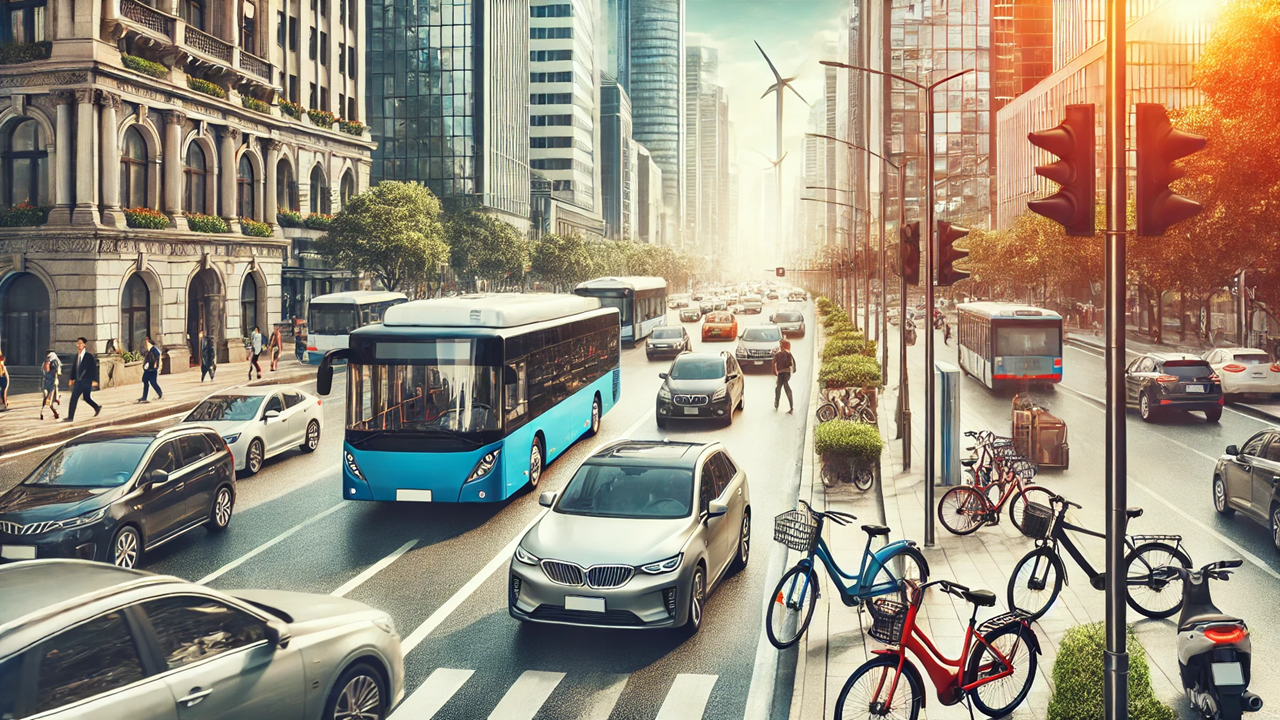Driving Change: How Innovations in Transport Shape a More Equitable and Sustainable Future
The article explores insights from the Mobility and Development: Fall 2024 Innovations, Policies, and Practices report, highlighting how innovations in transport governance, technology, and gender-focused policies are driving sustainable economic growth and social inclusion worldwide. Case studies from Dhaka, Pakistan, Argentina, and Latin American cities illustrate how effective urban mobility can transform economies, promote gender equity, and reduce environmental impact.

As the world continues to urbanize and economies expand, the need for effective, sustainable, and inclusive transport solutions becomes increasingly critical. The Mobility and Development: Fall 2024 Innovations, Policies, and Practices report from the World Bank delves into these pressing issues, exploring how transport innovations can drive economic growth, promote gender equity, and address environmental challenges. From electric vehicles in Pakistan to lithium transport in Argentina, this comprehensive periodical showcases global efforts to reimagine the transport sector for a better tomorrow.
The Power of Smart Urban Mobility
Urban areas are rapidly becoming the epicenters of global growth, but with growth comes a host of challenges—traffic congestion, pollution, and the struggle to meet mobility needs. The report highlights the critical role that governance reforms play in addressing these challenges, using the city of Dhaka as a case study.
In Dhaka, the existing Dhaka Transport Coordination Authority (DTCA) has long faced limitations, leading to inefficiencies in managing the city’s transportation needs. The solution? Empowering transport authorities with stronger planning, regulatory, and enforcement capabilities. Governance reforms, as suggested in the report, can transform urban mobility, making it more efficient and equitable for all residents, especially in rapidly growing cities where congestion and inadequate infrastructure are common problems.
Innovation also takes center stage in Africa, where transport strategies are becoming increasingly holistic, considering the interlinked factors of transport, land use, social equity, and environmental impact. By focusing on these connections, cities across the continent are better equipped to tackle the unique challenges of urban mobility in low-income areas.
Addressing Gender Gaps in Public Transport
The report goes beyond infrastructure to examine how mobility can empower marginalized groups, particularly women. In cities like Amman, Beirut, and Cairo, public transport remains a significant barrier to women’s participation in the workforce. Safety, accessibility, and reliability are often inadequate, hindering their economic potential.
According to the findings, improving public transport for women can enhance their ability to contribute to the labor market. Tailored transport solutions, such as women-only buses or improved safety measures, could transform the way women engage with their cities and their economies. The ripple effect? Not only a more inclusive society but also a significant boost to economic growth.
Transport systems designed with gender-specific considerations are critical in reducing barriers for women. This highlights a growing recognition of the socio-economic impact that transport policies can have on gender equity—an often overlooked dimension of urban mobility.
Infrastructure as a Catalyst for Economic Growth
Infrastructure projects are typically viewed through the lens of immediate benefits like reduced travel time or lower costs. However, the report presents a broader perspective—one that highlights the long-term economic transformations enabled by these projects. A case study from Armenia illustrates this, showing how upgrading the Lifeline Roads Network went beyond just improving travel. The project spurred job creation, particularly for women, and contributed to the country’s shift from agriculture to more diversified economic sectors such as manufacturing and services.
Another standout example is Pakistan's push for electric mobility. The government’s commitment to transitioning to electric vehicles (EVs) is not just about environmental responsibility; it’s about reducing fuel imports, creating jobs, and enhancing the country’s economic resilience. While the transition is still in its early stages, the report argues that the lessons learned in Pakistan could serve as a blueprint for other developing countries.
Similarly, Argentina’s Northwestern provinces, home to some of the world’s largest lithium reserves, face unique infrastructure challenges. With global demand for lithium rising, particularly for EV batteries, the region's infrastructure needs to catch up. The report underscores the importance of addressing these challenges to unlock the full economic potential of lithium, including decarbonizing its transport value chain.
The Role of Technology and Data
A key theme running through the report is the growing importance of technology in transforming transport. From Big Data to drone regulations, technological innovations are reshaping how cities plan and manage transport systems. In Latin America, for instance, cities like Bogotá and Buenos Aires are leveraging Big Data to optimize transport planning, revealing new insights into travel patterns and demand that were previously inaccessible through traditional methods.
The report also touches on the burgeoning use of drones across multiple sectors, including agriculture, logistics, and disaster response. As drone usage expands, harmonized regulations will be essential to ensure safety and maximize economic benefits. Countries that move quickly to establish clear guidelines will likely lead the way in unlocking the economic potential of this technology.
A Path Toward Equitable and Sustainable Development
The Mobility and Development: Fall 2024 report makes it clear that transport is about more than just moving people from one place to another—it’s about fostering economic development, enhancing social inclusion, and protecting the environment. Whether through governance reforms, technological innovations, or gender-specific interventions, the transport sector holds the key to addressing some of the world’s most pressing challenges.
By focusing on sustainability, inclusivity, and innovation, the transport sector can help pave the way for a more equitable future. As the global community continues to tackle the issues of climate change, inequality, and economic recovery, the insights from this report serve as a valuable guide for policymakers, city planners, and businesses looking to drive positive change through transportation.
- FIRST PUBLISHED IN:
- Devdiscourse










